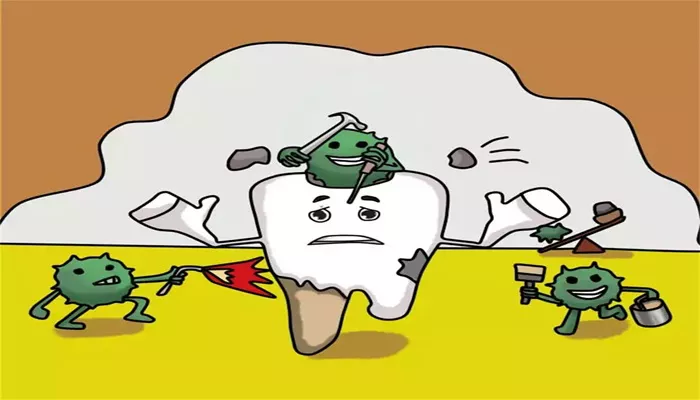In recent years, charcoal has gained popularity in the dental care industry. Activated charcoal, in particular, is touted for its purported ability to whiten teeth, freshen breath, and even promote gum health. However, the safety and efficacy of using charcoal for oral hygiene, especially concerning gum health, remain topics of debate among dental professionals. This article will explore the benefits and potential risks of using charcoal for gums, the science behind its use, and recommendations for maintaining healthy gums.
Understanding Activated Charcoal
What is Activated Charcoal?
Activated charcoal is a form of carbon that has been processed to create a porous surface. This increase in surface area allows it to adsorb various substances, including toxins, chemicals, and impurities. It is commonly used in emergency medicine to treat poisoning and drug overdoses. In the realm of personal care, it is found in products such as toothpaste, mouthwashes, and face masks.
How Does Activated Charcoal Work?
The mechanism behind activated charcoal’s effectiveness lies in its ability to adsorb substances. When applied to the teeth and gums, it can bind to certain compounds, preventing their absorption by the body. This property has led to its use in oral care products, with claims that it can help remove stains from teeth and improve overall oral health.
Potential Benefits of Charcoal for Gums
1. Natural Antibacterial Properties
One of the claimed benefits of activated charcoal is its antibacterial properties. Some studies suggest that charcoal may help reduce the levels of harmful bacteria in the mouth. By adsorbing toxins and bacteria, charcoal may contribute to an overall healthier oral environment. This could potentially benefit gum health by reducing the risk of gum disease, which is often caused by bacterial infections.
2. Whiter Teeth
While not directly related to gum health, many people use charcoal for its teeth-whitening effects. The abrasive nature of charcoal can help remove surface stains from teeth, leading to a brighter smile. A whiter smile can indirectly promote better oral hygiene practices, as individuals may be more motivated to maintain their dental care routine if they are satisfied with the appearance of their teeth.
3. Freshens Breath
Activated charcoal is also known for its ability to absorb odors. This property can help freshen breath by reducing the presence of foul-smelling compounds in the mouth. Fresh breath can enhance overall oral hygiene and promote confidence in social interactions.
Potential Risks of Using Charcoal for Gums
1. Abrasiveness
One of the significant concerns with using charcoal in dental care is its abrasive nature. While it can help remove surface stains, the abrasiveness can also wear down enamel over time. Enamel is the protective outer layer of teeth, and once it is damaged, it cannot regenerate. This can lead to increased tooth sensitivity, higher risk of cavities, and other dental issues.
2. Lack of Fluoride
Many charcoal-based toothpastes do not contain fluoride, a mineral that is essential for strengthening tooth enamel and preventing decay. Regular use of fluoride toothpaste is recommended by dental professionals to maintain optimal oral health. Relying solely on charcoal products may leave teeth vulnerable to decay and other issues.
3. Limited Research
While there are anecdotal claims regarding the benefits of activated charcoal for oral health, scientific research is limited.
Most studies focus on the efficacy of activated charcoal in treating poisoning and its use in other medical applications.
More research is needed to determine its long-term effects on gum health and overall oral hygiene.
4. Staining and Residue
Some users report that charcoal can leave a dark residue on teeth and gums, which can be difficult to remove. This can lead to aesthetic concerns and may require additional cleaning to restore the natural appearance of teeth and gums.
Recommendations for Gum Health
1. Maintain Good Oral Hygiene
The foundation of healthy gums lies in proper oral hygiene. This includes brushing teeth at least twice a day with fluoride toothpaste, flossing daily, and using an antibacterial mouthwash. Good oral hygiene helps remove plaque, the primary cause of gum disease.
2. Regular Dental Check-ups
Regular visits to the dentist are essential for maintaining gum health. Dentists can identify early signs of gum disease and provide professional cleanings to remove tartar buildup. These check-ups also allow for personalized advice on oral care products that are best suited for individual needs.
3. Balanced Diet
A balanced diet rich in vitamins and minerals can support gum health. Nutrients such as vitamin C, vitamin D, and calcium are particularly important for maintaining healthy gums. Foods such as fruits, vegetables, dairy products, and lean proteins should be included in a healthy diet.
4. Limit Sugary Foods and Drinks
Sugar is a significant contributor to tooth decay and gum disease. Limiting the intake of sugary foods and beverages can help protect both teeth and gums. Instead, opt for healthier snacks like nuts, yogurt, and fresh fruits.
5. Consider Professional Whitening
If teeth whitening is a goal, consider consulting a dental professional for safe and effective options. Dentists can provide treatments that are less abrasive and more effective than over-the-counter charcoal products.
Conclusion
The use of activated charcoal for oral care, particularly for gum health, presents both potential benefits and risks. While it may offer some antibacterial properties and help with teeth whitening, its abrasive nature and lack of fluoride raise concerns about long-term use. Additionally, the scientific evidence supporting its efficacy in promoting gum health is limited.
For optimal gum health, it is essential to prioritize good oral hygiene practices, regular dental check-ups, and a balanced diet. While charcoal may have a place in the broader conversation about dental care, it should not replace established oral hygiene practices or professional dental advice. Ultimately, maintaining healthy gums requires a comprehensive approach that includes effective dental care products and regular consultations with dental professionals.
Related topics:

